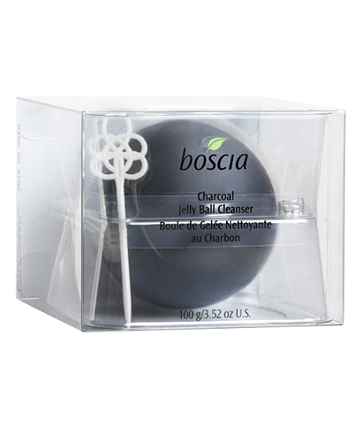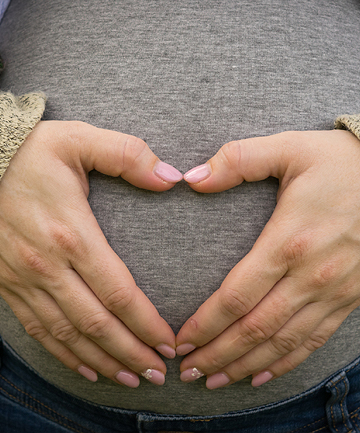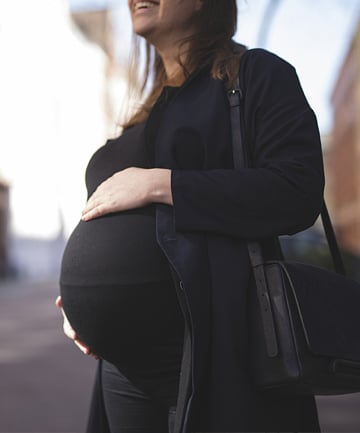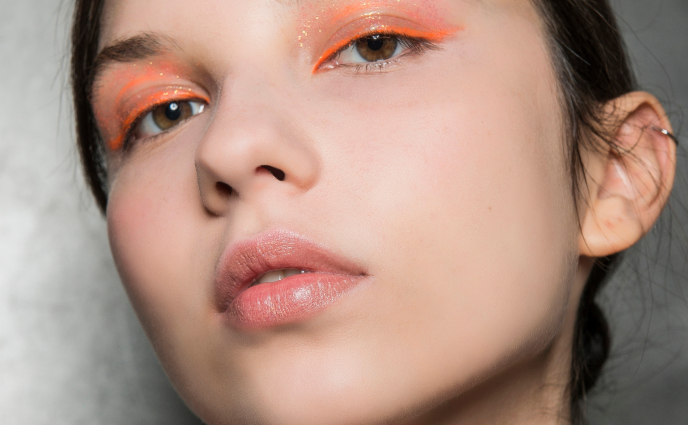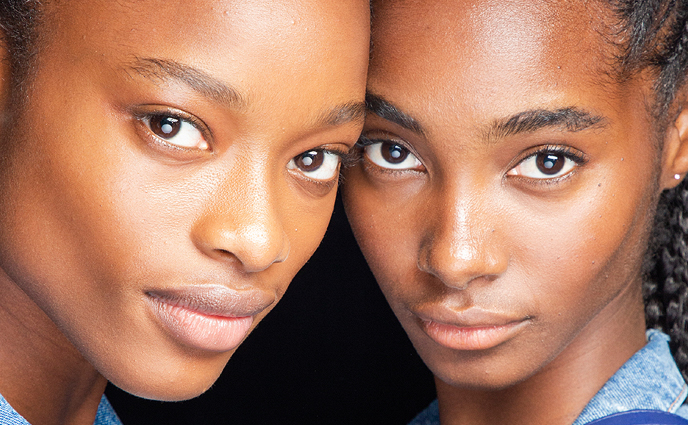"The changes in hormones during pregnancy can trigger acne flares in many women," says board-certified dermatologist Dr. Tsippora Shainhouse, MD, FAAD. Fortunately, she says this usually clears up within a few months of delivery. That said, she also notes that managing acne during pregnancy can be a little tricky because there are not many medications that are FDA-approved for regular use in pregnancy. She recommends charcoal washes or foaming washes, which are safe to use if your skin tends to be greasy (we're particular fans of the Boscia Charcoal Jelly Ball Cleanser, $20, which is quite gentle, not to mention adorable).
Melasma, aka "mask of pregnancy," refers to darkened patches of skin, usually on the face. "This mask of pregnancy can develop on the forehead, cheeks, upper white lip secondary to hormones during pregnancy," Shainhouse explains. To treat this issue, she advises wearing sunscreen, as this product is not significantly absorbed into the body, and is safe in pregnancy and breastfeeding. She suggests looking for chemical sunscreens with avobenzone, or mineral sunscreens with zinc oxide, as these are generally considered safer. In addition, she also stresses the importance of using products containing vitamin C, which may help to fade pigment while they prevent further darkening associated with pregnancy or breastfeeding.
Image via by Elena Botta/Moment/Getty
"It is common for women to shed hair about three months after giving birth, as this is a normal phenomenon called telogen effluvium," says Shainhouse. She explains that the shedding phase usually lasts about one to two months, and that it can take nine to 12 months for hair to look closer to what it looked like before pregnancy. But while it may be tempting to use shampoo products which promise to make your hair back, she advises steering clear of such beauty buys, as they usually contain an ingredient called minoxidil, which has not been studied in pregnancy and breastfeeding, and is not approved for use during that time.
Image via Caiaimage/Paul Bradbury/Caiaimage/Getty
"It's common for women to experience more sensitive skin during pregnancy, which is typically attributed to increased hormone levels and also because your skin stretches as your baby grows," said Dove Partner and dermatologist, Dr. Rosemarie Ingleton.
Image via Johner Images/Getty
"If you have sensitive skin, you should avoid switching products often to reduce the risk of eventual exposure to ingredients that you are sensitive to," says Ingleton. Fragrance is a common allergen, she said, so be careful not to switch between too many fragranced products.
Image via Kathrin Ziegler/DigitalVision/Getty


